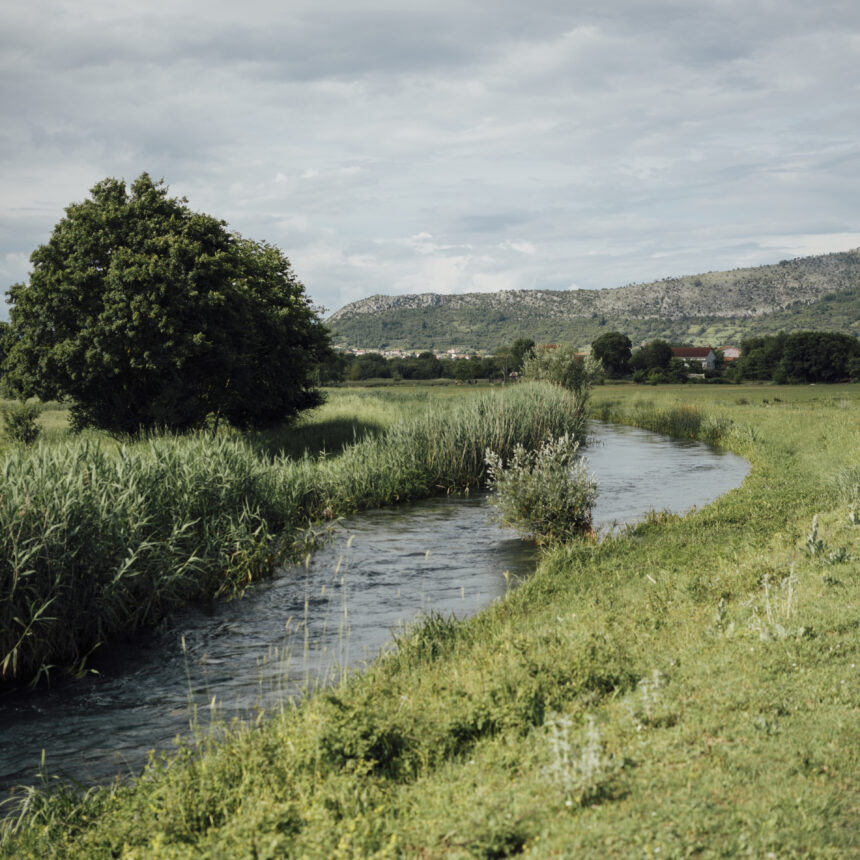Are you a farmer or landowner facing erosion and water quality problems? Have you considered the benefits of grassed waterways?
This article will show you how these practices can help you manage these issues and enhance your farm’s potential.
What Are Grassed Waterways?
Grassed waterways are key for farms to handle water erosion. They are wide, shallow channels made where water runs off in fields. Their main job is to move water down hills without causing erosion.
They slow down water flow, catch sediment and nutrients, and lessen erosion on your land.
By using these natural methods, you also protect your soil and improve water quality in rivers, lakes, and streams. This makes grassed waterways vital for sustainable farming and caring for the environment.
Importance of Grassed Waterways in Agricultural Landscapes
Vegetated water channels play a vital role in maintaining the health and productivity of farmlands. Let’s explore the importance of grassed waterways in agricultural landscapes.
1. Erosion Control
Grassed waterways are excellent at controlling soil erosion. By providing a stable, vegetated path for water to flow through, they prevent the rapid movement of water that can carry away topsoil. This is especially important during heavy rains, when runoff can be intense.
2. Water Quality Improvement
Runoff water often contains sediments, nutrients, and pollutants that can harm downstream water bodies. Grassed waterways act as natural filters, trapping sediments and absorbing nutrients before they reach rivers, lakes, or ponds.
This helps to improve the overall water quality, protecting aquatic ecosystems and ensuring cleaner water for agricultural and human use.
3. Wildlife Habitat
Grassed waterways can also serve as habitats for various forms of wildlife. The vegetation provides cover and food for birds, insects, and small mammals. By creating these green corridors, farmers can support biodiversity on their lands, contributing to a healthier and more balanced ecosystem.
4. Cost-Effective Solution
Compared to other erosion control and water management practices, grassed waterways are relatively low-cost. They require minimal maintenance once established, making them an economical choice for farmers. Additionally, they can be integrated into existing farming operations with little disruption.
5. Enhanced Aesthetic Value
Lastly, beyond their functional benefits, grassed waterways can enhance the visual appeal of agricultural landscapes. The lush green corridors can break up the monotony of crop fields, adding to the overall aesthetic value of the land.
Case Studies and Success Stories of Grassed Waterways
Grassed waterways are a key solution for farmers facing erosion and water quality issues in the U.S. They have shown great success in the Chesapeake Bay watershed and the Mississippi River Basin Healthy Watersheds Initiative.
Chesapeake Bay Watershed
The National Resources Conservation Services (NRCS) has helped farmers in the Chesapeake Bay watershed use grassed waterways on over 1.26 million acres. This has greatly improved the water quality in the Chesapeake Bay. The bay had issues with too many nutrients and sediment from farms.
Mississippi River Basin Healthy Watersheds Initiative
The Mississippi River Basin Healthy Watersheds Initiative is a big project with the NRCS and other groups. It shows how grassed waterways help with water quality. Thanks to these practices, at least 16 impaired water bodies in the Mississippi River Basin have been cleaned up.
These examples prove that grassed waterways are a powerful tool against erosion and for better water quality. By working with farmers and partners, programs like those in the Chesapeake Bay and Mississippi River Basin have made a big difference. They help the environment and farmers at the same time.
Conclusion
Grassed waterways are a key conservation method that helps with erosion control and improves water quality on farms. They work by letting more water soak into the ground, improving soil, and covering it with plants.
These actions help reduce soil erosion, increase soil health, and recharge groundwater. With their proven success and growing focus on sustainable farming, grassed waterways are set to be crucial for the future of farming.




